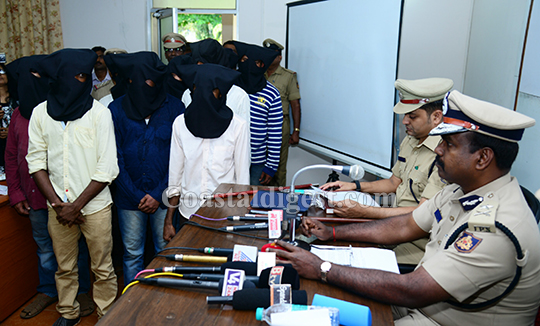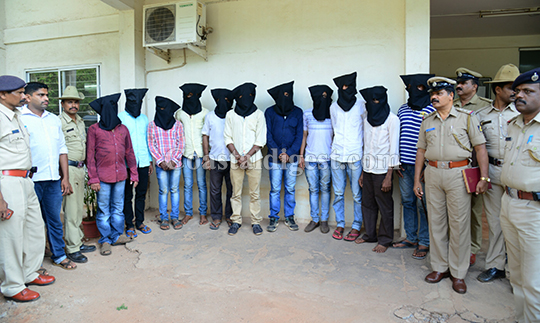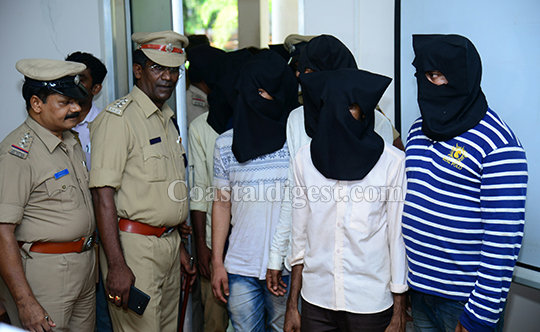Mangaluru, Apr 29: In a major breakthrough in local Congress leader Abdul Jaleel Karopadi murder case, the police have arrested 11 persons including underworld elements and saffron activists after a week long search and investigation.

The arrested have been identified as 1) Rajesh Naik from Karopadi, 2) Narasimha Shetty from Mani, 3) Prajwal, a resident of Belandoor, 4) Pushparaj, 5) Sachin and 6) Puneeth from Savanoor, 7) Roshan, 8) Sathish Rai from Kanyaya, 9) Keshava from Veerakamba, 10) Prashanth from Krishnapura and 11) Vachan from Kanyaya. Many of them reportedly have close connection with saffron groups.
The police have also recovered two motorbikes, a Maruti Omni and two machetes used by the accused to commit the murder.
Addressing media persons before producing the accused before a local court, Harishekharan, IGP (western range), said that five teams had been formed to nab the accused under the guidance of Dakshina Kannada SP.
The top cop said that the two prime accused – Rajesh Naik, who runs a shamiyana shop, and Narasimha Shetty – are aides of notorious underworld gangster Vicky Shetty. Both the rowdy-sheeters were picked up from Udupi, while others were arrested in Puttur.
On April 20, a gang four miscreants had barged into the office of Karopadi Gram Panchayat in Bantal taluk and brutally murdered 40-year-old Abdul Jaleel, who was the vice president of the same GP.
Also Read:
Bantwal: Gram Panchayat vice president Jaleel hacked to death in broad daylight
Bantwal: Thousands throng to pay homage to murdered Cong leader Jaleel
Jaleel Karopadi murder case: Cops seize motorbikes, weapons








Comments
Add new comment